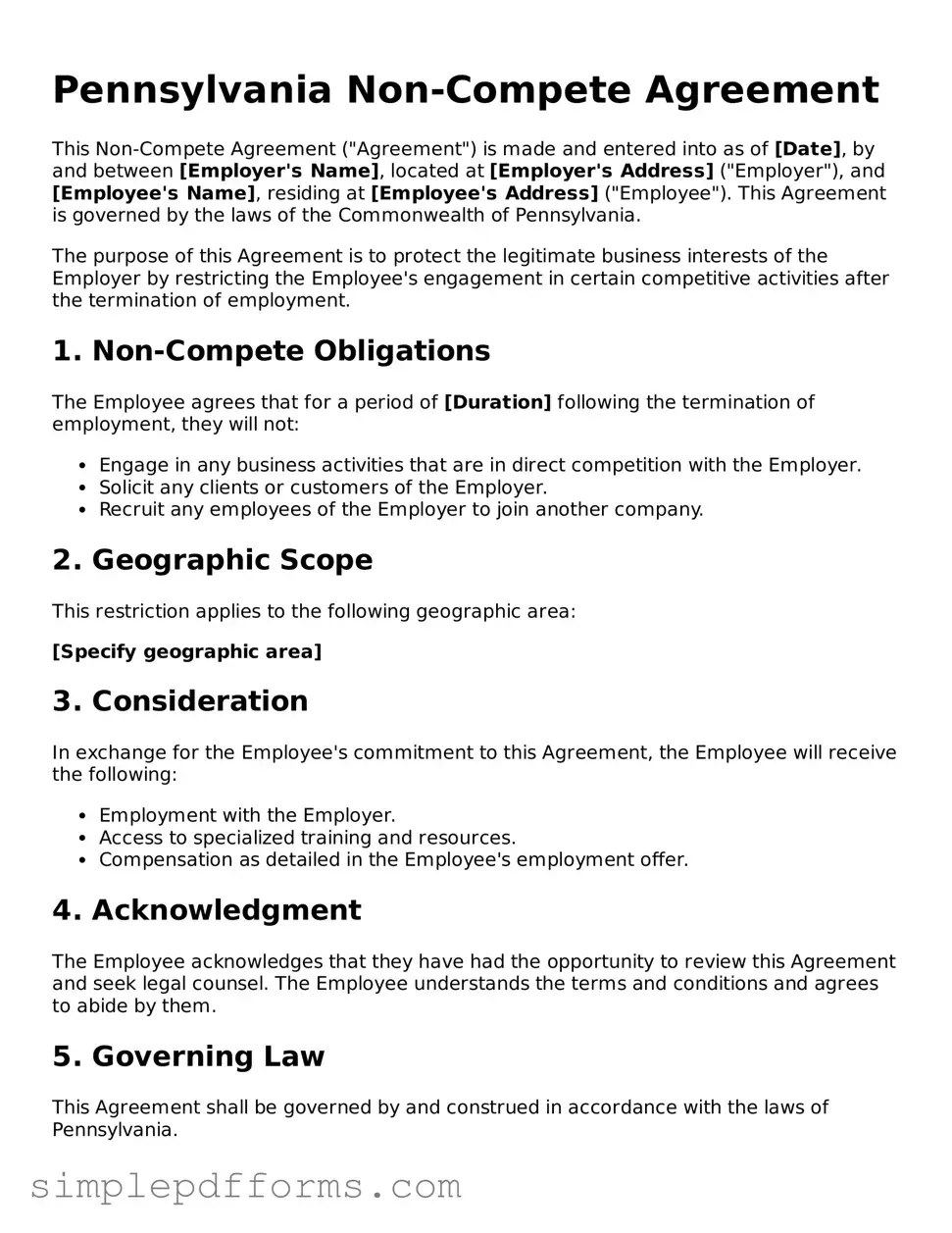Attorney-Verified Non-compete Agreement Document for Pennsylvania State
A Pennsylvania Non-compete Agreement form is a legal document that restricts an employee from working for a competitor or starting a similar business within a specific timeframe and geographical area after leaving a job. These agreements are designed to protect a company's trade secrets and competitive advantage. Understanding the terms and implications of this form is crucial for both employers and employees.
Open Non-compete Agreement Editor Now

Attorney-Verified Non-compete Agreement Document for Pennsylvania State
Open Non-compete Agreement Editor Now

Open Non-compete Agreement Editor Now
or
Get Non-compete Agreement PDF Form
Your form is waiting for completion
Complete Non-compete Agreement online in minutes with ease.